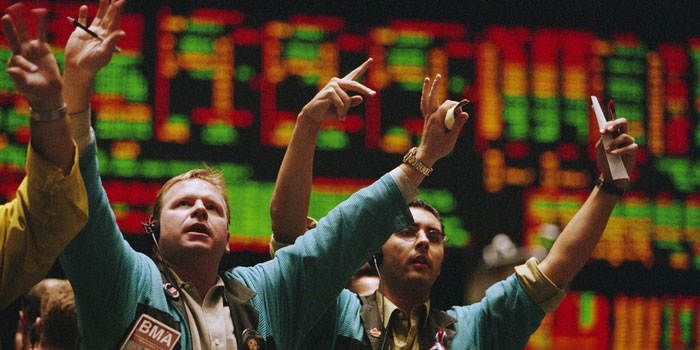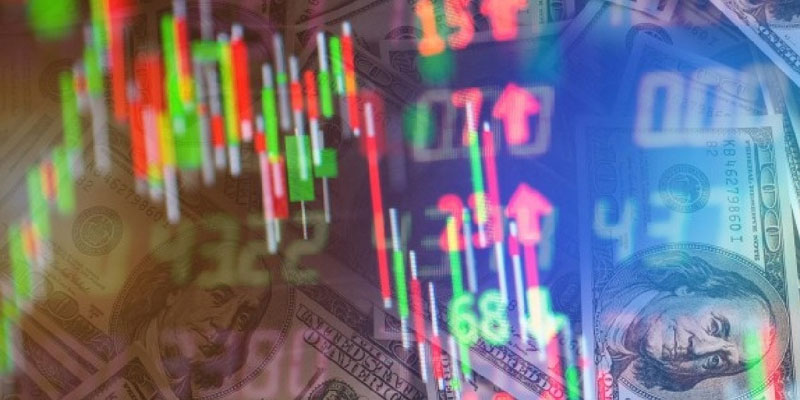What Is a Dealer Market? Things to Know about Dealer Market
Triston Martin
Jan 19, 2024
Trading does not involve a third party. The dealers instead use their accounts to buy and sell stocks. Since the dealer is trading with his account, access to trading activity is quick and straightforward, and the procedure as a whole is simple and quick. When trading securities, time is a crucial component. The price variation takes place over a relatively short period. A trader must rush to maximise their profit from the trade without wasting time. In the Over-the-Counter (OTC) market, there is no main floor. Dealers have the option of using electronic marketing. Dealers in various locations have simple access to them, thanks to it. Brokerage and other fees and commissions serve no purpose because there is no involvement of a third party. It enables the dealer to use their resources for research and investor service. This market can take advantage of the finest opportunity and respond to market changes.How Dealer Markets Work

In a dealer market, a person called a "market maker" (MM) risks their own money to give investors liquidity. The bid-ask spread is the primary way the market maker controls risk. It costs investors money but helps dealers make money. The most significant difference between a dealer market and an auction market is that there is more than one market maker in a dealer market. In an auction market, a single expert in a central place matches buyers and sellers for a specific security. This makes trading and liquidity easier.
Disadvantages
It needs more human participation than all other markets do. Since there is no opportunity for bidding, the share’s value could not be acceptable. Some transactions require a specialist's expert expertise. An expert can take advantage of the chance more effectively because they have the knowledge and experience of the market. Due to the absence of a third party, this market cannot benefit from a specialist's knowledge. The OTC (Over-the-Counter) market does not see much stock trading. Market makers are dealers, and speculative and manipulative behaviour are possibilities.The OTC (Over-the-Counter) market is where most bonds and foreign exchange trade. National Association of Securities and Dealer Automated Quotation System (NASDAQ) is well-known in the dealer market for equities stocks. The NASDAQ system, established in 1971 as a component of the OTC (Over-the-Counter) market, is now viewed as a distinct entity.
What Sets a Dealer Apart from a Trader?
A dealer is a specific category of trader who agrees to make two-sided markets in the assets they deal with inconsistently. In other words, they will always put both a bid and an offer. To make money off the bid-ask spread, one must frequently trade with buyers and sellers in the market. Contrarily, traders are free to purchase or sell as they wish without having to create two-sided markets. Non-dealers are considered value gainers in this situation. To exit a deal at a profit later on, traders do not benefit from the bid-request spread; instead, they wait for the market to move in their favour.
Which Securities Dealers Come in What Forms, and Are there dealers in Robinhood?

BDs (Broker-Dealers), licensed companies that can trade securities for their accounts and on behalf of clients, are a common sight in the modern financial markets. Broker-dealers who exclusively facilitate trades on behalf of their clients and charge a commission are known as pure brokers. Some individuals trade against clients using their accounts while acting both as the principal and the agent. There are thousands of broker-dealers, all of which fall into one of two major categories: a warehouse, which only sells its goods, or an independent broker-dealer, which also offers goods from other companies. No. A broker, such as Robinhood or another online trading platform. Although it is registered with FINRA as a broker-dealer and executes trades on customers' behalf, it does not take the opposing side of the trades. Nor is it not a marketplace or exchange in and of itself.
Conclusion
The dealer works as the counterparty for buyers and sellers in the dealer market, which is a secondary market. Investors are free to conduct the transaction at the bid price set by the dealer, who is regarded as the market maker. As a result, it guarantees market liquidity. Bonds and currencies are the most general securities sold in this market; stocks are rarely traded there. The market is quotidian. The dealer provides both the bid price and the asking price, at which the dealer is prepared to sell the security. The difference between the bid and ask prices is how the dealer generates money. They foster market liquidity and promote long-term growth.







